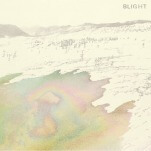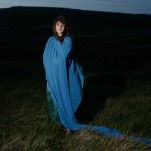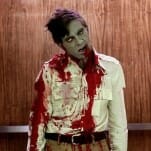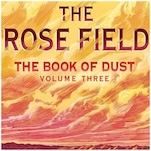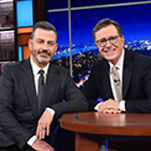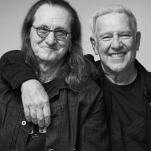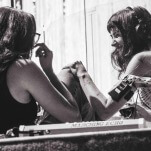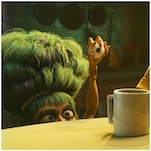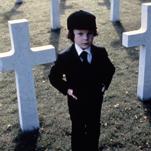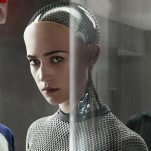A Flaw in the Eye: Race, Male Toxicity and the Enduring Impact of Polanski’s Chinatown
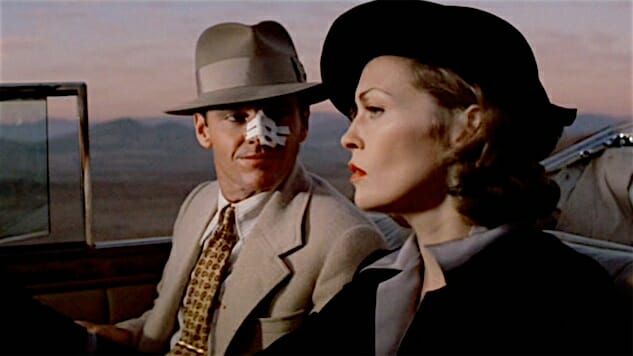
I guess I shouldn’t have been taken aback, but I was. I don’t remember if the conversation started with Polanski’s infamous personal life and whether it should or could be separated from his work, but that seems likely. Famous creatives in hot water for sexual misconduct has been … a bit of a thing this year, and lots of the writers at the conference were talking about it. But when I said, “Chinatown is still a masterpiece,” poet Garrett Hongo looked at me like he’d just seen me for the first time and wasn’t impressed.
“What?” I said. This white person was rapidly turning into a bright-red person because I had a feeling I knew what he was going to say and I had not given it one second’s thought.
“You don’t have a problem with Asian stereotypes in that movie? Screw like a Chinaman? All that shit?”
I had a problem with stereotyping anything, unless it was mindful and deliberate and served a clear artistic purpose. But did it? I hadn’t seen the film in years, maybe decades; I’d been college-age. So had Hongo, as it turned out. My film studies prof had been an auteur-worshipping aesthete who really didn’t give two shits about identity politics. At the time, that was probably fine with me—if I’m honest, even a welcome relief from what seemed like a relentless and pedantic obsession with it: I was from Oakland and unsure why the cosseted campus of Mount Holyoke insisted on acting like “feminism” and “race equality” were new and in need of urgent and constant ’splaining. Eighteen-year-old me had no issue with separating Polanski the statutory rapist from Polanski the genius director. At 45, I still actually don’t, but this made wonder if I’d perhaps not seen the film through an unbiased lens? Was there even such a thing as an unbiased lens? I doubted it, and so did my friend, once we really talked about it. We both kind of scowled at possibly having to accommodate an imminent attitude adjustment, but we were also more curious than crotchety, in the end.
“Maybe we should both watch it again,” I said.
And we did.
Amy Glynn: When was the first time you saw Chinatown, Garrett? When it came out? And have you seen it again before this week?
Garrett Hongo: A long, long time. 43 years? I saw it when it came out in Ann Arbor in 1974 in a theater I went to with about half-a-dozen other Asian-American graduate students. They were mostly Chinese Americans who were studying economics, law, political science, medicine, and, like me, East Asian studies. We all went as we’d seen the trailer, and we’d planned it as a kind of group outing. They were outraged. I was, too. Probably we were prepared to be. I’ve not seen it again until this past week.
A.G.: I hope this doesn’t sound like a clueless question, but can you expand on what specifically outraged you at the time?
G.H.: It was hard, in those days, after so many generations of anti-Asian messaging in mainstream culture that denigrated us regularly, to take from that initial viewing anything but offense at the caricatures, stereotypes, and racist jokes embedded in the film. Remember, we all might have been among the first of our families not only to go to college, but to graduate and professional schools. The parents of my friends owned laundries or restaurants or were blue-collar and clerical workers who lived mainly in Chinese-American communities. We were the generation that was integrating more fully into mainstream American culture, and we were always mocked for it. I remember an English professor saying to me when I was an undergrad, “A Japanese American as the next great American poet? Sure. I believe that.” At Michigan, our predominantly Asian intra-mural softball team, for which I played centerfield and shortstop, was regularly taunted with racist remarks on the field by players from other teams. It wasn’t easy to think past the racist motifs in Polanski’s film at the time.
A.G.: I think I first saw it in a film studies class at Amherst College in the early ’90s. I remember the prof as being a white Korean War vet who had some serious problems with women and ruthlessly disadvantaged them in his classes. I don’t recall him making racist remarks, but I can tell you we explored the film without really talking about the meaning of race at all. Our discussion was totally limited to esthetics. I wonder about that now, since there are both race and gender tropes Polanski uses that might or might not be “okay” but certainly ought to be unpacked a bit. But I concede that I didn’t give it much thought at the time, not in the way you’re talking about. I guess I didn’t have to! Which never occurred to me until this conversation, I will be honest.
G.H.: I watched the film again just three days ago. My view has expanded considerably, actually. My reaction wasn’t so viscerally negative, but I was able to see, prodded by your view, how the racism was a conscious strategy to leverage not only the plot, but the theme of blindness, folly and hubris among not only Jake Gittes (Jack Nicholson), his two detectives, and the police, but the entire population being manipulated by the Manichean evil of Noah Cross (John Huston), who is making a land and water grab while they pursue half-clues and false mythologies about themselves around the LA basin. Racism is an entertainment and a distraction for what was really going on and, Nicholson, the Oedipal detective at the center of the plot, is absolutely blinded by it throughout the film—until a crucial moment when he gets it. You pointed this out to me. “Bad for gl/rass,” the Japanese gardener says—an explosively racist caricature of the Japanese accent—and it becomes the clue that turns the narrative. It had always only pissed me off before.
A.G.: For me, it matters that it’s a conscious device, as are the dramatically doomed and helpless women in the story (but we’ll get to that).
G.H.: By the way, I later met Jimmy Hong and Beulah Quo, Evelyn Mulwray’s (Faye Dunaway’s) Chinese butler and housekeeper in the film. They spent their careers playing stereotypes, and Quo became the #1 Hollywood agent supplying the industry with a stream of Asian actors playing buck-toothed, slant-eyed and kow-towing fools and actresses playing exotic courtesan and femme fatale roles.
“Polanski “weaponized” American racism against the Chinese by deploying it as a tar baby that Jake and others get stuck in.”
-

-

-

-

-

-

-

-

-

-

-

-

-

-

-

-

-

-

-

-

-

-

-

-

-

-

-

-

-

-

-

-

-

-

-

-

-

-

-

-



